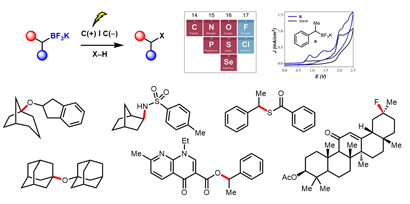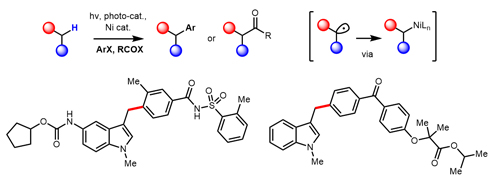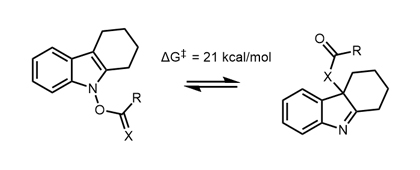SYNTHETIC ORGANIC CHEMISTRY LAB
RESEARCH
RESEARCH AREA

The research program of the HGL group is dedicated to the development of enabling synthetic technologies towards an unexplored chemical space. A special focus is placed on the exploration of novel reactivities of C(sp3)-based building blocks towards stereoselective transformations. On the basis of the established reactivities, a design and identification of functional materials is aimed at, with special emphasis on biomedical applications.
-
Stereo-controlled cross coupling of C(sp3)-based reaction partners
An efficient “cross-coupling” approach offers an ideal gateway to an unexplored C(sp3)-based chemical space. Novel reactivities of transition metal catalysts play a central role here. We recently reported effective transformations of organometallic reagents that enabled the creation of a stereo-enriched C(sp3)-based chemical space in a highly convergent manner.

-
Electrochemical activation of organic compounds
Based on novel synthetic modalities based on the electrochemical oxidation of organic compounds, an uncharted mode of activation of organoboron reagents has been revealed. The strategy has allowed for the discovery of a universal method to introduce an array of heteroatoms on a C(sp3) reaction center. We are currently pursuing to expand the reactivity to other types of bond formation.

-
Strategic utilization of radical intermediates
The highly reactive nature of a radical intermediate could be exploited to enable a variety of innovative chemical transformations. Our research group is exploring novel atom transfer and redox processes to generate important radical intermediates under specialized setting.

-
Synthesis of natural products
We are applying the catalytic reactivities of our research program to the synthesis of complex natural products and their analogues. Of particular interest are specifically substituted indole alkaloids and type II polyketides.


